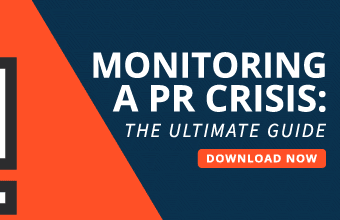Crisis experts salivate whenever a PR crisis occurs. These self-proclaimed know-it-alls, like most PR people, say that they have all the answers. Currently, crisis specialists in sports PR are providing unasked-for advice regarding how Major League Baseball, the Los Angeles Dodgers and MLB superstar Shohei Ohtani should act during the ongoing investigation into a gambling scandal involving Ohtani and an interpreter.
It’s time for these PR pros to stop bloviating about the situation
It’s now under investigation by legal authorities. Stop making a two- or three-day story into a long-running soap opera that regurgitates the same things day after day. Very few people care about it. And anyway, there’s only one correct answer that should be advised: “Tell the truth and let the investigation play out.”
The overblown media coverage of the situation is only of interest to a tiny percentage of the American population, fanatics who care about the team. Even smaller is the percentage of people who will turn their back on baseball and Ohtani if the legal investigation shows that he didn’t tell the truth and nothing but the truth, when he said he knew nothing about his interpreter’s doings.
I say this because history shows that a sports crisis is short-lived and most fans don’t give a hoot about them
Some examples that prove my contention:
- In the early 1950’s, a point-shaving scandal rocked college basketball. It didn’t affect the popularity of college hoops despite the extensive media coverage about the criminal investigation, which resulted in players being put on probation and/or sentenced to jail. The result? College basketball has thrived.
- More recently, Major League Baseball was rocked when it was proved that players were using steroids, which they believed would improve their performance. The result? Much condemnation by politicians and the media. But fans didn’t give up on baseball.
- The National Football League has been the subject of so many scandals that it’s impossible to name one. They include trying to destroy the reputation of the medical scientist who linked concussions to brain injuries and allowing players whose off the-field conduct would result in you and I being fired or jailed to continue playing as long as they could help a team. The result? The NFL is the most popular sport in the U.S.
- And who can forget the doings of the International Olympic Committee, which has often provided its games to totalitarian countries that have used them for propaganda purposes. The IOC has also allowed individual athletes from countries that have been banned because of doping violations to compete. The result? American companies and Olympic fans see nothing wrong about the IOC’s decisions and brands continue to sponsor the Olympics, even when they are staged in countries that are enemies of the U.S.
That’s why I believe that whatever this legal investigation uncovers, baseball fans will still support their teams, despite the thousands of written and spoken “woe is me” reports by sports journalists. And if Ohtani is found to have lied, his punishment will be a slap on the wrist.
Media coverage of the situation will, of course, continue. And crisis practitioners will say, “he should have done this, instead of that.” The result? Millions of words will be written and spoken about the situation that will have little to no effect on what Major League Baseball or the Dodgers do, regardless of the investigation’s findings.
There’s an important lesson that PR practitioners can learn from the above examples
Don’t overreact if a few negative articles about a client are written. Wait a few days to see if the negative stories continue before taking action. In most cases, negative press coverage will disappear with no effect on your client, as they did shortly after the above sports PR crises abated and the negative press coverage stopped.
It’s important to realize that what a reporter thinks is a straight news story, people close to the client might see as an attack and overreact. Responding to every negative news story is a sure way to keep it in the news and create a self-inflicted PR crisis.









